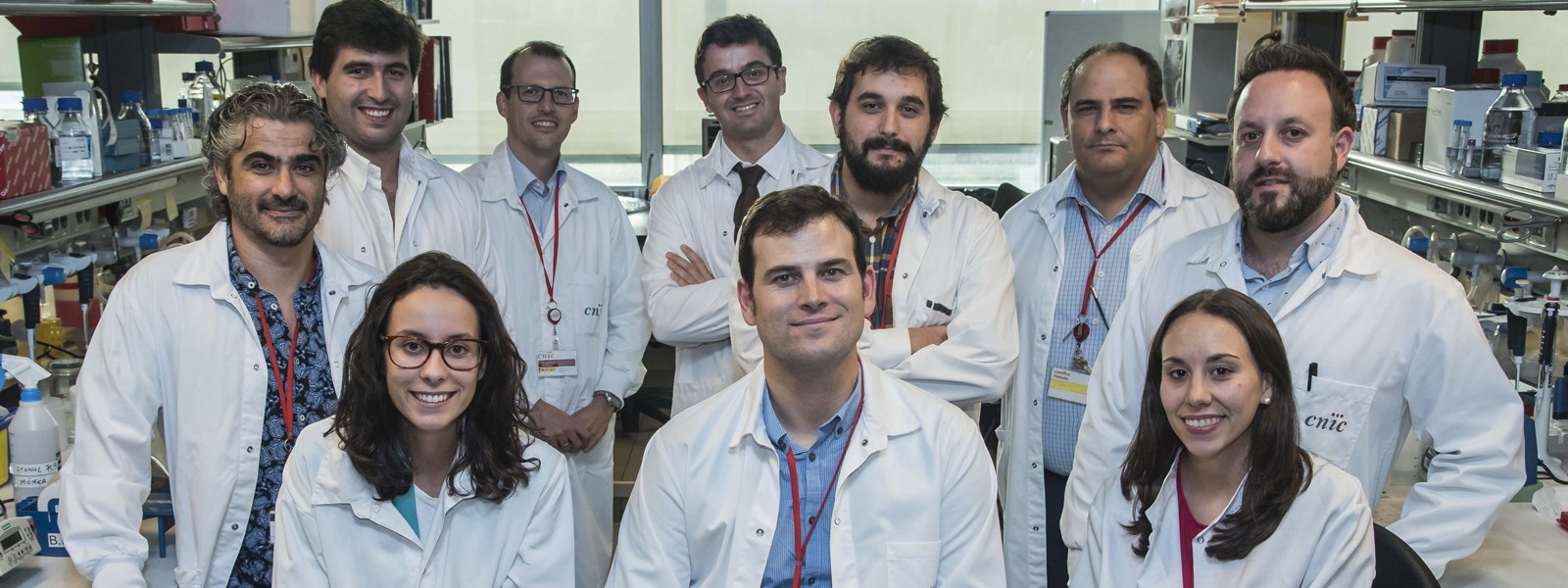DIRECTOR
MORE
Borja Ibáñez CabezaRESEARCH TEAM
Jaime García-Prieto Cuesta, Rodrigo Fernández Jiménez, Rocío Villena Gutiérrez, Carlos Galán Arriola, Juan Antonio Bernal Rodríguez, Gonzalo Pizarro Sánchez and Jaume Agüero Ramón-Llin, Spanish National certer for Cardiovascular Research (CNIC); Javier Sánchez González, Philips Cuidado de Salud; Eduardo Oliver Pérez, Imperial College London; Manuel Carnero Alcázar, Hospital Clínico San Carlos; Juan Martínez Milla and Sandra Gómez Talavera, Hospital Universitario Fundación Jiménez Díaz.
COLLABORATING INSTITUTIONS
DESCRIPTION
Heart failure is the principal responsible for healthcare expenditure in developed countries. Idiopathic dilated cardiomyopathy (iDCM), defined as dilatation and systolic impairment of the left ventricle in the absence of abnormal loading conditions or coronary artery disease, is the most common cause of heart failure in the middle age population. A genetic base is found in 20-50% of iDCM cases.
Unfortunately, there is no effective therapy to reverse iDCM. The heart is a metabolically demanding organ and mitochondria are paramount to the survival and activity of cardiomyocytes. In recent study, we have identified imbalanced mitochondrial dynamics and mitochondrial fragmentation as an underlying cause of iDCM in mice (Science 20151). We found that a metabolic switch (from fatty acids to glucose) was involved in the iDCM pathogenesis. More importantly, a simple dietetic approach based on high fat diet (HFD) was able to inhibit this metabolic switch and prevent iDCM.
The present project seeks to uncover the nature of these cardioprotective dietary elements in small and large animal models with the ultimate aim of developing a novel therapy to treat iDCM in humans. Mice with overt iDCM will be fed diets composed of different substrates (fatty acids, carbohydrates, and proteins) and different compositions of fatty acids in order to pinpoint the dietary components responsible for cardioprotection. Porcine iDCM models will expand the translational relevance of these discoveries.
Screening of iDCM patients for germline mutations affecting mitochondrial dynamics will be tested in vitro to evaluate the impact on mitochondrial fusion and fission. Overall, this project will provide the foundation for future clinical trial testing a simple, cost-effective therapy aimed at curbing the heart failure epidemic.

